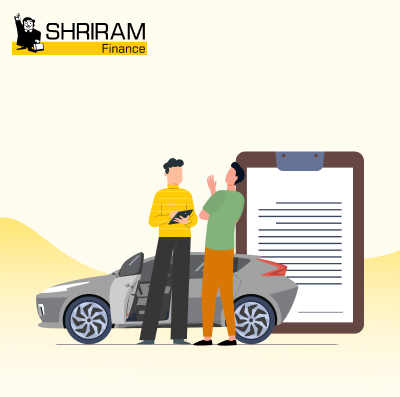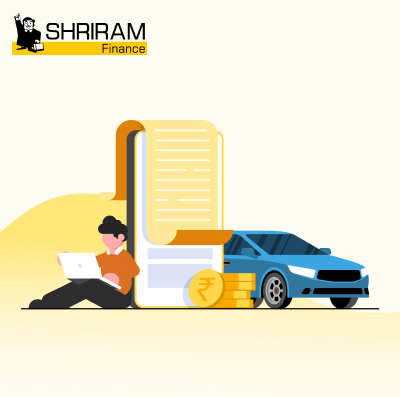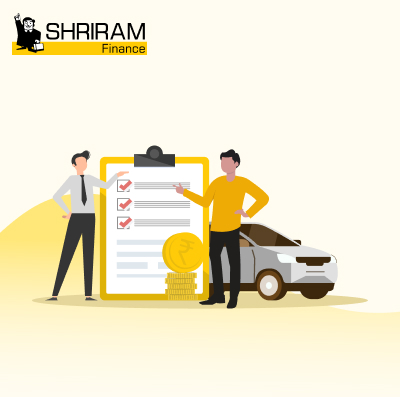For many farmers, owning a vehicle can make daily tasks more efficient—whether it’s reaching markets, transporting goods, or managing fields. Tailored used car loans for farmers provide structured repayment plans, considering seasonal income fluctuations. These loans often include flexible tenures and competitive rates, easing budget management for agricultural needs. However, applying for a loan involves more than just signing forms. It requires awareness of eligibility, documentation, and lending institution policies. Much like preparing a field before sowing, taking the right steps in advance can lead to better results. This blog shares essential tips and practical suggestions to help farmers secure a used car loan with greater ease and confidence.
Used Car Loan Tips for Farmers
Follow these used car loan tips for farmers to improve your chances of getting approved and finding the best loan terms.
1. Maintain a Good Credit Score
A good credit score, ideally over 700, helps farmers qualify for the best interest rates from loan providers. This results in lower monthly payments and better loan terms. Carefully review your credit report from the bureaus for any errors that could be unfairly dragging down your score. Also, consider paying down existing outstanding debts to improve your debt-to-income ratio. Reducing other credit balances demonstrates responsible usage and helps boost your score.
2. Compare Multiple Lending institutions
Do not just accept the first loan offer you receive. Make sure to research and apply with several banks thoroughly, non-banking financial companies (NBFCs), credit unions, farm credit associations, and other loan providers to compare the full range of loan terms available.
Additionally, carefully consider the loan duration being offered. Longer tenures have lower payments but higher overall interest costs. Also factor in origination fees, down payment percentages needed, and the specific interest rates each financial institution offers. It is important not to rely solely on the dealership’s in-house financing; instead, compare offers from multiple lending institutions before making a decision.
3. Consider a Co-signer if Needed
If your credit score, income, or current debts do not meet a lending institution’s approval criteria, consider asking a trusted friend or family member to co-sign the used car loan with you. Their additional income, assets, credit history, and lower debt-to-income ratio will combine with yours when the loan provider evaluates the risk of providing financing. This extra backing can help those who might not qualify for a used car loan by themselves.
4. Understand the Value of Down Payments
Providing a more substantial down payment upfront, ideally between 10-20% or more of the used vehicle’s total purchase price can significantly improve the loan terms lending institutions will extend to you. That’s because you have to borrow less, which results in less risk. Smaller loan amounts usually mean lower monthly payments and often qualify for the best interest rates that lending institutions offer for smaller loans.
5. Learn About Loan Solutions for New Buyers
Many loan providers offer special used car financing programs to eligible first-time vehicle buyers with shorter or no credit history. These programs cater to those establishing credit for the first time with more flexible qualifying criteria. Often, they require proof of income and a creditworthy cosigner. First-time buyer loans let those with limited credit access reasonable financing to purchase reliable used transportation, essential for handling farm responsibilities.
6. Enquire About Exclusive Pricing for Eligible Applicants
When enquiring various financial institutions regarding used car loan terms and conditions, ask each one specifically what kinds of applicant discounts they offer that could be applied to reduce the interest rate of your used car loan. Many loan providers feature automatic payment or electronic bank draft discounts of 0.25-0.50% off benchmark rates when you sign up to have your monthly payment automatically withdrawn from your checking or savings account. This convenient option knocks a little off the interest charges. Also, ask if they offer any reduction for being an existing customer or loyalty program participant.
7. Understand Prepayment Penalties
Some used car loans charge a fee if you pay off the loan early. This fee is called a prepayment penalty. It helps the lending institution cover the interest they lose when you finish the loan before time. Before you sign the loan papers, ask your lending institution if this fee applies. Knowing this will help you avoid extra costs if you want to pay off your loan sooner.
8. Build an Emergency Fund for Loan Payments
Since farm income can change with the seasons, it is important to save an emergency fund equal to 6 to 12 months of your car loan payments. During periods with less crop income, this fund can help you make your loan payments on time. Saving regularly for these times helps you avoid missed payments and the risk of your vehicle being repossessed, which could disrupt your farm operations.
Conclusion
Navigating the used car loan process can be challenging for farmers due to fluctuating incomes. However, following key tips—such as improving your credit score, carefully calculating all loan costs, and comparing interest rates and terms from multiple lending institutions—can increase your chances of approval. Taking these strategic steps helps you secure a loan with better terms and pay less interest over time, making it easier to afford a reliable vehicle that supports your farming needs.
































